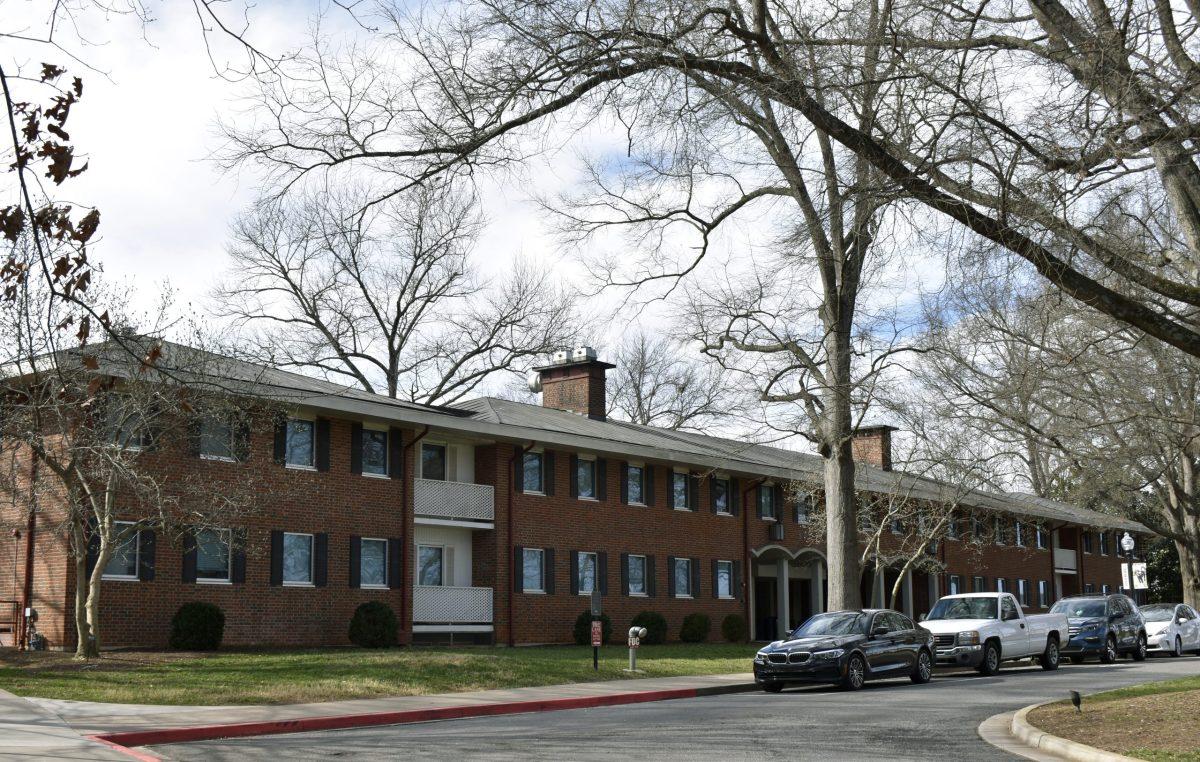Gas leak poisons Shipp Hall residents.
On Jan. 15, 2019, residents of Shipp Hall received an email from Dean Lemere of the Office of Residence Life. This email contained a serious warning: on Jan. 14, 2019, there was an equipment failure in the boiler room, which produced carbon monoxide. According to the email, all dorm rooms in Shipp were tested and cleared, and the boiler malfunction had been resolved.
However, the response from Wofford did not come soon enough. Before the leak was detected, at least 3 students succumbed to the symptoms of carbon monoxide poisoning; alarmingly, one resident had to be hospitalized.
While sophomore Caitlyn Conner was home for the weekend, carbon monoxide gas accumulated in her dorm room, located directly above the boiler room in Shipp Hall. With a throbbing headache and ringing in her ears, Conner awoke at 5:30 a.m. on Mon. morning. While trying to take care of herself alone, she fainted, which prompted her to call Campus Police. They took her to the hospital. At first, her doctors believed she was simply dehydrated. However, after at least two other residents became ill as well, Wofford decided to check the boilers for a fault that may have leaked carbon monoxide.
They found one.
According to the most recent statistics from the Center for Disease Control and Prevention (2015), 393 people died from accidental carbon monoxide poisoning in a single year, with the highest percentage of deaths occurring in winter months.
What is shocking is that, despite these statistics, there were no carbon monoxide detectors in Shipp Hall before the residents got sick. Available for $10 at Walmart, this simple alarm could have prevented Conner’s hospitalization and the illness of other residents. If Wofford had never detected the faulty boiler, or if Conner had simply tried to go back to sleep despite feeling ill, Shipp residents could have died from carbon monoxide inhalation.
Only now, after residents experienced carbon monoxide poisoning, are there are carbon monoxide detectors in Shipp Hall. But since their function is to prevent residents’ exposure to carbon monoxide, their presence is long overdue—and counterproductive.
Conner described the incident as “really scary,” and she feels that Wofford should have had more preventative measures in place. However, she acknowledged the school’s diligent attitude about correcting their mistake:
“Wofford has been really good in how they’ve dealt with it. They’ve paid all the doctor and hospital bills, and have been in constant contact with me making sure that I’m okay.”
While Wofford has been considerate and hospitable towards Conner and other affected residents, they still wonder why it was necessary if the proper precautions are in use.
The Office of Marketing responded to questions about the incident:
- When did Wofford become aware of the leak?
After students reported becoming ill, carbon monoxide readings were taken which led to an inspection of the boiler room serving Shipp Hall. Mechanical adjustments were made to the boiler in question, and we believe the Shipp Hall boilers are now operating normally and in a safe manner.
- Were there any carbon monoxide detectors in Shipp Hall before the incident occurred?
There were no carbon monoxide detectors in Shipp Hall before January 2019. However, all boilers across campus are inspected annually, and preventive maintenance is performed regularly. Shipp Hall is no exception; boilers there passed inspection in December 2018. Since the issue was discovered, the college has installed CO monitors in all residence hall mechanical spaces where gas heat is used to serve the rooms. Should CO be detected, the monitors, which are connected to our Simplex system that alerts the fire department, would set off the building fire alarm, alerting Campus Safety and the Spartanburg City Fire Department and alerting residents to evacuate.
- Have there been other carbon monoxide leaks on campus this year?
Students reported symptoms consistent with carbon monoxide exposure in December 2018. At that time, the symptoms were attributed to other causes. After students reported symptoms around Jan. 14, 2019, and an investigation was undertaken, which led us to believe that the initial carbon monoxide event took place in December. No other carbon monoxide incidents have been reported. Mechanical adjustments were made to the boiler in question, and independent professionals have inspected it. The monitoring systems installed in January have triggered no alarms. All Shipp Hall boilers are operating normally and in a safe manner. We realize this was a frightening experience for our students and their families as well as our staff, and the college remains committed to the health and wellbeing of all in our community.
Wofford seems to have improved the safety of all dorms on campus since the carbon monoxide leak. But it is unfortunate that it took the illness of several residents going back more than a month than for basic alarms to be implemented.
By Allison Sherman































Wofford Concerned Alum • Mar 21, 2019 at 10:36 pm
Seems like President Samhat is too busy building new buildings to pay attention to buildings that actually matter to the students. Shame!
Jeannie • Mar 1, 2019 at 6:42 pm
Thank you bringing this information to light. The laws/codes vary from state to state regarding CO alarms. But if there is a source for CO there is a need for CO alarms regardless of the codes. CO is invisible and odorless and CO alarm is the only way to protect lives.